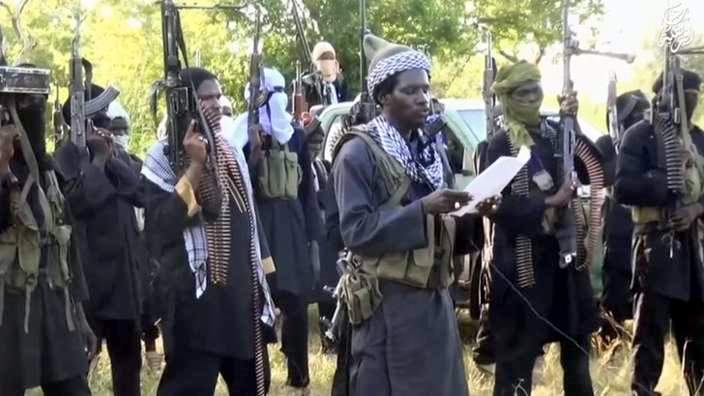In Nigeria, while violence in the far north-east has left at least 20 people dead and more than 80 wounded in suicide bombings and armed attacks near Maiduguri last weekend, authorities have disclosed the existence of peace talks with the jihadist group Boko Haram. Secret negotiations, which began several months ago to find a lasting solution to the conflict that has plagued the extreme north-east of the country for almost ten years.
It was not until the girls were released from Dapchi that the tongues loosened. The head of state, the minister of information and the head of the Nigerian intelligence services then revealed the existence of peace talks with Boko Haram. They concern “the possibility of a permanent cessation of hostilities” and “the possibility of granting amnesty to the repentant”. An ambitious program that clashes with the internal divisions of the Islamic group.
According to security sources, these discussions are in fact with the Abu Musab al-Barnawi faction. The other faction, led by Abubakar Shekau, is hermetic to any negotiations with the authorities.
This is not the first time that Abuja announces the opening of discussions. In 2014, former President Goodluck Jonathan even claimed to have reached an agreement with the insurgents but, the fighting had resumed soon after.
This announcement, comes less than a year from the presidential election, security in the far northeast of Nigeria is a sensitive topic. Muhammadu Buhari, who was elected in 2015 on his promise to pacify the area and regularly reiterates that Boko Haram is “technically defeated,” was heavily criticized after the recent outbreak of violence and the kidnapping of Dapchi.
Analysis
For the Nigerian political analyst, Chris Ngwodo, even if these discussions result in an agreement, this would not put an end to the violence.
“The government’s announcement is highly skeptical. There is a heavy liability around these discussions with the insurgents. Notably since the previous Administration established successive contacts with Boko Haram. These talks had been tainted by fraud and the administration of Goodluck Jonathan had not come out unscathed. What seems different with these current discussions is that the federal government has opened peace talks with a very specific insurgent faction, namely that of Abu Musab al-Barnawi. The faction of Abubakar Shekau was very clear about his total rejection of state authority. It would be interesting to see if any of the conditions of a possible agreement with the al-Barnawi faction involves military cooperation and the fighters can be used to infiltrate the Shekau faction. In any case, even if an agreement was reached with al-Barnawi’s faction, I do not think it would change Shekau’s strategy or use of violence. It would not put an end to hostilities.”
